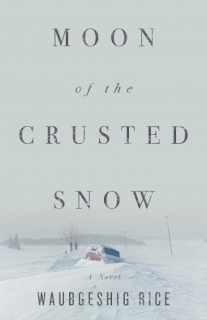We are continuing with our Zoom meetings and they have become very productive. We all agree however that when we can again meet in person it will be even better! Present at the meeting were Betty, Carla, Janet, Linda, Marg, Michèle and Shirley. We discussed Shirley's book choice, The Weight of Ink by Rachel Kadish. Ms. Kadish is an American author. This is her 4th book. The Weight of Ink took her 12 years to write. She teaches creative writing at Lesley University.
This is the story that takes place in London, of two strong women, Ester Valesquez a young Jewish emigrant in the 16th century and Helen Watt a Historian with a specialty in Jewish history in the 21st century. Helen is asked to evaluate papers found during the renovation of an ancient house in London. Through these papers we meet Ester who is a scribe for a blind Rabbi. As the stories evolve we learn of the horrors that Jews endure in the Spanish Inquisition, the rich trade of Amsterdam and their life in London including the plague that ravages the city. We read of Helen's one true love when she spends a year in a Jewish kibbutz. We read of her struggles as a historian ailing as she was, and the trials and tribulation she goes through in her last years working, her struggle to make her mark by discovering the importance of the papers found in the 17th century London house.
Most of us loved this book, enjoyed the intrigue, the strong women characters and the men that surrounded them, the 16th century mores of London society. Anti-Semitism was as present as today's society. Of course the description of the London plague and how society coped is very relevant for us today. We learned so much history of those times in London in this story.
When Helen, as a young woman, decides to spend a year in a Jewish kibbutz, we discover the politics, the norms of a kibbutz and we witness the development of a love story between Helen and Dror the young Jewish man who leads and supervises the young people who come to do their part in the development of the Jewish State. We live the pain that Helen feels when she leaves Dror behind.
In the 16h century, Ester Valesquez is determined to continue her work as a scribe but also she discovers a thirst for knowledge that she needs to fulfil. She struggles to find balance between her desire for knowledge and her attraction and friendship with Alvaro.
Some of us found a link with Jane Austen's books, women looking for husbands. Janet noted that in the time of Ester in London it is the same time that Jean-Esprit Radisson from the book Bush Runner was in London. There is a lot to learn and enjoy in this book.
Some of us enjoy books with a happy satisfying ending and although Helen did die before her work and achievements were properly recognized, we felt that there was a good and happy ending.
Thank you Shirley for pushing us into reading this book, heavy and long as it was!









